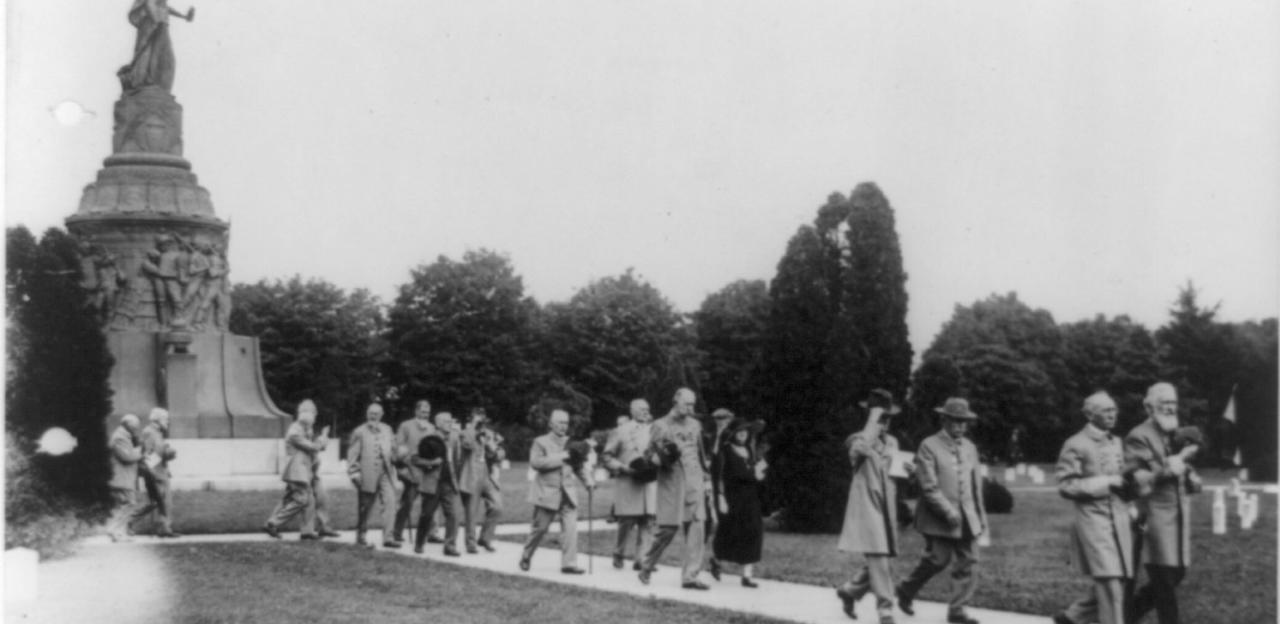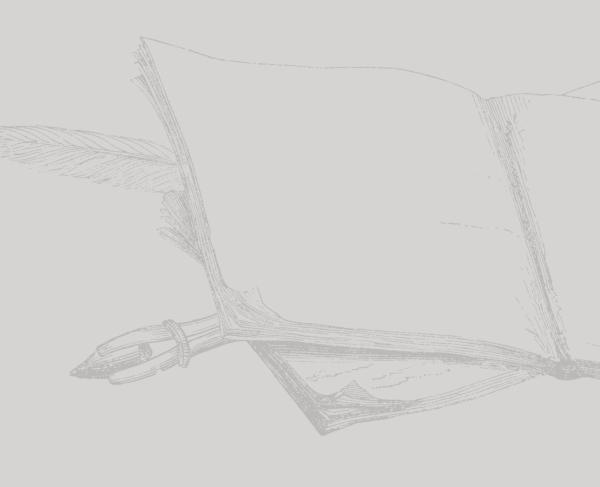Cornerstone Laying of the Arlington National Cemetery Confederate Monument

By 1901, all of the 397 known, and 12 unknown, Confederate soldiers buried in the national cemeteries at Alexandria, Virginia, and at the Soldiers' Home in Washington were reinterred in the Confederate section at Arlington National Cemetery (another 73 southern civilians are also interred in the Confederate section). On March 4, 1906, then Secretary of War William H. Taft, approved a request from the United Daughters of the Confederacy to erect a memorial to their war dead in Arlington. What follows is part of the cornerstone dedication ceremony on November 12, 1912. The monument was unveiled in 1914.
Mrs. [Marion] Butler next introduced the President of the United States, Mr. Taft, saying:
This is the first time the Daughters of the Confederacy have held an Annual Convention out of the South. We have assembled here to lay the corner-stone of a Confederate monument, to be erected at Arlington, the Federal Cemetery, the former home of Lee. Permission to build this monument was granted to the Daughters of the District of Columbia and the Confederate Veterans by Mr. Taft when Secretary of War. We deem it most fortunate and propitious that we are assembled in the National Capital for such a purpose and are to be welcomed by the same distinguished citizen, who is now President of the United States. We trust that the building of this monument will be the keystone of the arch of a reunited country.
Ladies, the President.
The President [William H. Taft] replied as follows:
"Ladies of the United Daughters of the Confederacy: I beg to welcome you to Washington. You have captured this city beautiful and made it more lovely by your presence. As its temporary head, I give you the freedom of the city, and recognize that in what you have done, you have founded a shrine and an altar here which will be visited in the future by many a faithful pilgrim.
If the occasion which brings you here were the mourning at the bier of a lost cause, I know that the nice sense of propriety of a fine old social school would have prevented you from inviting me, as the President of the United States, to be present. You are not here to mourn or support a cause.
You are here to celebrate, and justly to celebrate, the heroism, the courage and the sacrifice to the uttermost of your fathers and your brothers and your mothers and your sisters, and of all your kin, in a cause which they believed in their hearts to be right, and for which they were willing to lay down their lives. That cause ceased to be, except in history, now more than half a century ago. It was one which could elicit from half a nation, and brave and warlike race, a four year struggle in which lives, property, and everything save honor were willingly parted with for its sake. So great was the genius for military leadership of many of your generals, so adaptable was the individual of your race to effective warlike training, so full of patriotic sacrifice were your people that now when all the bitterness of the struggle on our part of the North has passed away, we are able to share with you of the South your just pride in your men and women who carried on the unexampled contest to an exhaustion that few countries ever suffered. The calm observer and historian, whatever his origin, may now rejoice in his heart that the Lord ordained it as it is. But no son of the South and no son of the North, with any spark in him of pride of race, can fail to rejoice in that common heritage of courage and glorious sacrifice that we have in the story of the Civil War and on both sides in the Civil War.
It has naturally taken a long time for the spirit of hostility that such an internecine struggle develops completely to die away. Of course it has lasted a less time with those who were the victors and into whose homes and domestic lives the borrows of war were not directly thrust. The physical evidences of war were traceable in the South for decades after they had utterly disappeared in the North in the few places in which they existed. Then there are conditions in the South which are a constant reminder of the history of the past. Until within recent decades, prosperity has not shed her boon of comfort upon the South with as generous a hand as upon the North. Hence those of us at the North who have been sometimes impatient at a little flash now and then of the old sectional antagonism are unreasonable in our failure to appreciate these marked differences.
For years after the war, the Republican Party, which had carried the nation through the war to its successful conclusion, was in control of the administration of the Government, and it was impossible for the Southerner to escape the feeling that he was linked in his allegiance to an alien nation and one with whose destiny he found it difficult to identify himself.
Time, however, cures much, and after awhile there came a Democratic Administration of four years, and then another one of four years. Southerners were called to Federal offices, they came to have more and more influence in the halls of Congress and in the Senate, and the responsibility of the Government brought with it a sense of closer relationship to it and to all the people for whom the Government was carried on.
I speak for my immediate Republican predecessors in office when I say that they all labored to bring the sections more closely together. I am sure I can say that, so far as in me has lain, I have left nothing undone to reduce the sectional feelings and to make the divisions of this country geographical only.
But I am free to admit that circumstances have rendered it more difficult for a Republican Administration than for a Democratic Administration, to give to our Southern brothers and sisters the feeling of close relationship and ownership in the Government of the United States. Therefore, in solving" the mystery of that Providential dispensation which now brings on a Democratic Administration to succeed this, we must admit the good that will come to the whole country in a more con- firmed sense of partnership in this Government which our brothers and sisters of the Southland will enjoy in an Administration, in which Southern opinion will naturally have greater influence, and the South greater proportionate representation in the Cabinet, in Congress, and in other high official stations. While I rejoice in the steps that I have been able to take to heal the wounds of sectionalism and to convey to the Southern people, as far as I could, my earnest desire to make this country one, I can not deny that my worthy and distinguished successor has a greater opportunity, and I doubt not he will use it for the benefit of the nation at large.
It fell to my official lot, with universal popular approval, to issue the order which made it possible to erect, in the National Cemetery of Arlington, the beautiful monument to the heroic dead of the South that you founded today. The event in itself speaks volumes as to the oblivion of sectionalism. It gives me not only great pleasure and great honor, but it gives me the greatest satisfaction as a lover of my country, to be present, as President of the United States, and pronounce upon this occasion the benediction of all true Americans."

